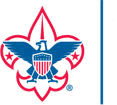Scouting Firsts: Pioneering Moments in Scouting History
Scouting has a rich history filled with remarkable milestones and pioneering moments that have shaped the movement into what it is today. From the first campouts to groundbreaking achievements, these significant “Scouting Firsts” have not only paved the way for future scouts but have also left an indelible mark on the world. In this blog post, we’ll delve into some of the most notable pioneering moments in scouting history, celebrating the spirit of adventure, camaraderie, and personal growth that define the scouting movement.
- The First Scout Camp: The concept of a dedicated camp for scouts was brought to life by Robert Baden-Powell, the founder of scouting. In 1907, he organized the first experimental camp on Brownsea Island, England, with a group of boys. This pioneering moment laid the foundation for the future of scouting, fostering a sense of camaraderie, outdoor exploration, and character development in a unique and immersive environment.
- The First Boy Scout Handbook: In 1910, the Boy Scouts of America published the first edition of the Boy Scout Handbook. This comprehensive guidebook, written by Ernest Thompson Seton and later expanded by William “Green Bar Bill” Hillcourt, became an essential resource for scouts worldwide. It offered valuable information on camping, survival skills, knot-tying, and the Scout Oath and Law, becoming a cherished companion for generations of scouts.
- The First Eagle Scout: Arthur Eldred holds the distinction of being the first Eagle Scout, the highest rank attainable in the Boy Scouts of America. On August 21, 1912, Eldred successfully completed the necessary requirements and became the trailblazer for future scouts who aspired to achieve this prestigious rank, representing the pinnacle of scouting achievement.
- The First Jamboree: The first World Scout Jamboree took place in 1920 in Olympia, London, gathering scouts from around the world for a global celebration of scouting. This momentous event fostered international friendship, cultural exchange, and the realization of Baden-Powell’s vision of creating a worldwide scouting brotherhood.
- The First Wood Badge Course: Wood Badge, an advanced leadership training program for adult scout leaders, was first held in 1919 at Gilwell Park, England. Led by Baden-Powell himself, the course introduced innovative leadership techniques and emphasized the importance of scoutmasters’ roles in shaping the lives of young scouts. Wood Badge has since become a cornerstone of adult leadership development in scouting worldwide.
- The First Female Scouts: Scouting was not limited to boys alone. In 1909, just two years after the inception of scouting, girls were welcomed into the movement. The Girl Guides (later known as Girl Scouts) were established by Baden-Powell’s sister, Agnes Baden-Powell, offering girls the same opportunities for personal growth, outdoor adventure, and community service.
The pioneering moments in scouting history have set the stage for countless adventures, personal development, and life-changing experiences for millions of scouts worldwide. From the first campouts and handbooks to groundbreaking achievements and inclusive practices, these milestones have shaped the scouting movement into the global phenomenon it is today.
As scouts, let’s celebrate and honor these pioneering moments, recognizing the vision and dedication of those who have gone before us. Let’s embrace the spirit of adventure, leadership, and service that define scouting, knowing that we are part of a storied tradition that continues to inspire generations of young individuals around the world.


